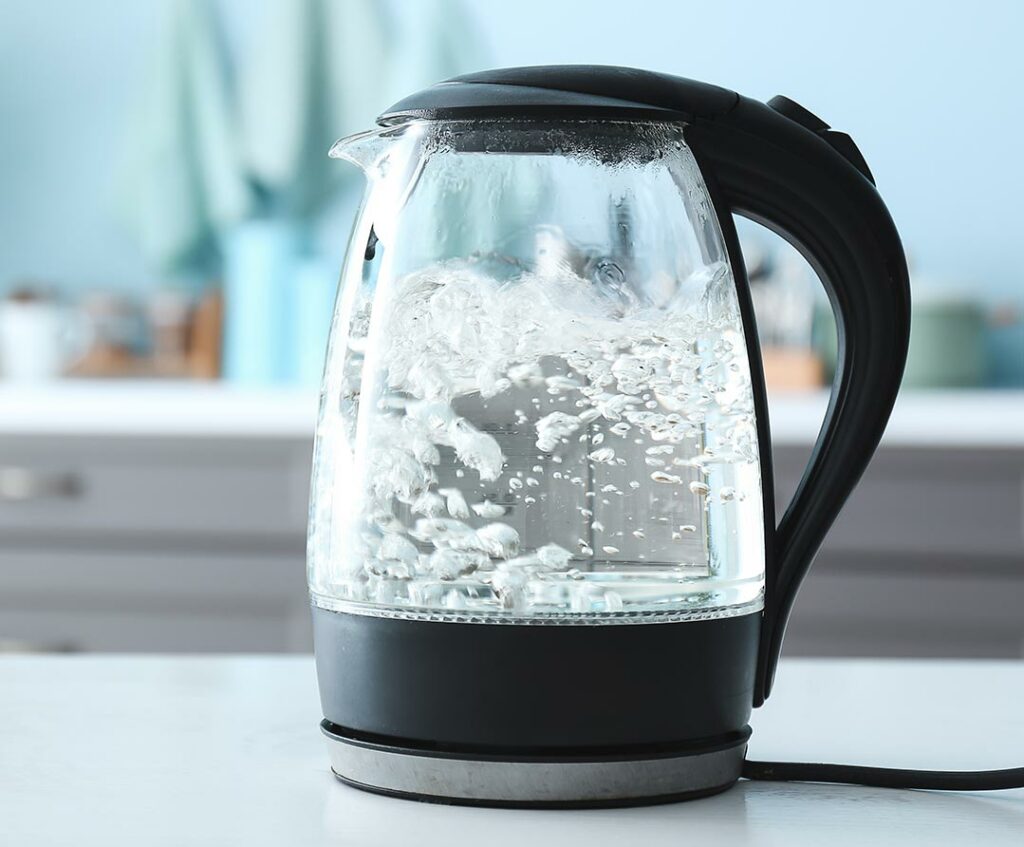Boil Water Notice
What is a Precautionary Boil Water Notice?
If water pressure drops below 20 psi due to a plant malfunction, water main break or repairs, GIWA must issue a Precautionary Boil Water Notice (PBWN) that may be for an isolated area, or for the entire water system.
Water pressure keeps unhealthy pollutants from entering the underground pipes that bring drinking water to your house or business. When the pressure is lost, contaminants including pathogens (disease-causing germs) can seep into the pipes. If one drinks or prepares food or beverages with contaminated water, illness may result. It is therefore an important safety step to boil or otherwise disinfect your tap water to kill any bacteria or viruses that may have contaminated the water.
Have Questions?

How can I disinfect my water before consumption?
Under a precautionary boil water notice, water used for consumption can be disinfected by any one of the following methods:
- Bring the water to a rolling boil and boil for one (1) minute.
- Use a disinfectant chemical. If you cannot boil water, you should put eight (8) drops (1/8 teaspoon) of common household bleach into one gallon of tap water, shake it, and allow to stand for 30 minutes. If the water is cloudy, use sixteen (16) drops (1/4 teaspoon) of bleach. After the water stands for 30 minutes, there should be a slight chlorine odor. Use common household bleach that has 5 or 6% active ingredients. Use food grade containers. Do not use bleach that has perfume scents added.
- Use water purification tablets or iodine that many sports and camping stores sell. You can also buy commercial bottled water for consumption and food preparation.
What other precautions should I take?
Consumption includes brushing teeth, washing fruits and vegetables, and using homemade ice. Tap water may be used for showering, baths, shaving and washing, so long as care is taken not to swallow or allow water in eyes, nose or mouth. Children and disabled individuals should have their bath supervised to ensure water is not ingested. The time spent bathing should be minimized. Though the risk of illness is minimal, individuals who have recent surgical wounds, are immune-suppressed, or have a chronic illness may want to consider using bottled or boiled water for cleansing until the notice is lifted.
Businesses and non-residential sites should take steps such as posting notices at, or disabling water fountains and ice machines during a PBWN. To provide water to visitors or employees, use commercially produced bottled water for drinking or beverage preparation (coffee). Food service operations have additional requirements from their regulatory agency.
When will the boil water notice be lifted?
After the water system is repaired, and the pressure is restored in the pipes to your home or business, the precautionary boil water notice will remain in effect for two (2) to several days while bacteria tests are conducted to assure the safety of the water. The notice will be lifted (rescinded) only after tests prove the water is safe to drink.
Contact GIWA with questions or
concerns.
We at GIWA take great care in assuring that your water is safe to drink, and we appreciate your cooperation with the precautionary boil water notice to protect public health during difficult times. Please call us if you have questions or concerns. You may also call the Department of Environmental Protection office at (239) 332-6975 for additional assistance.

